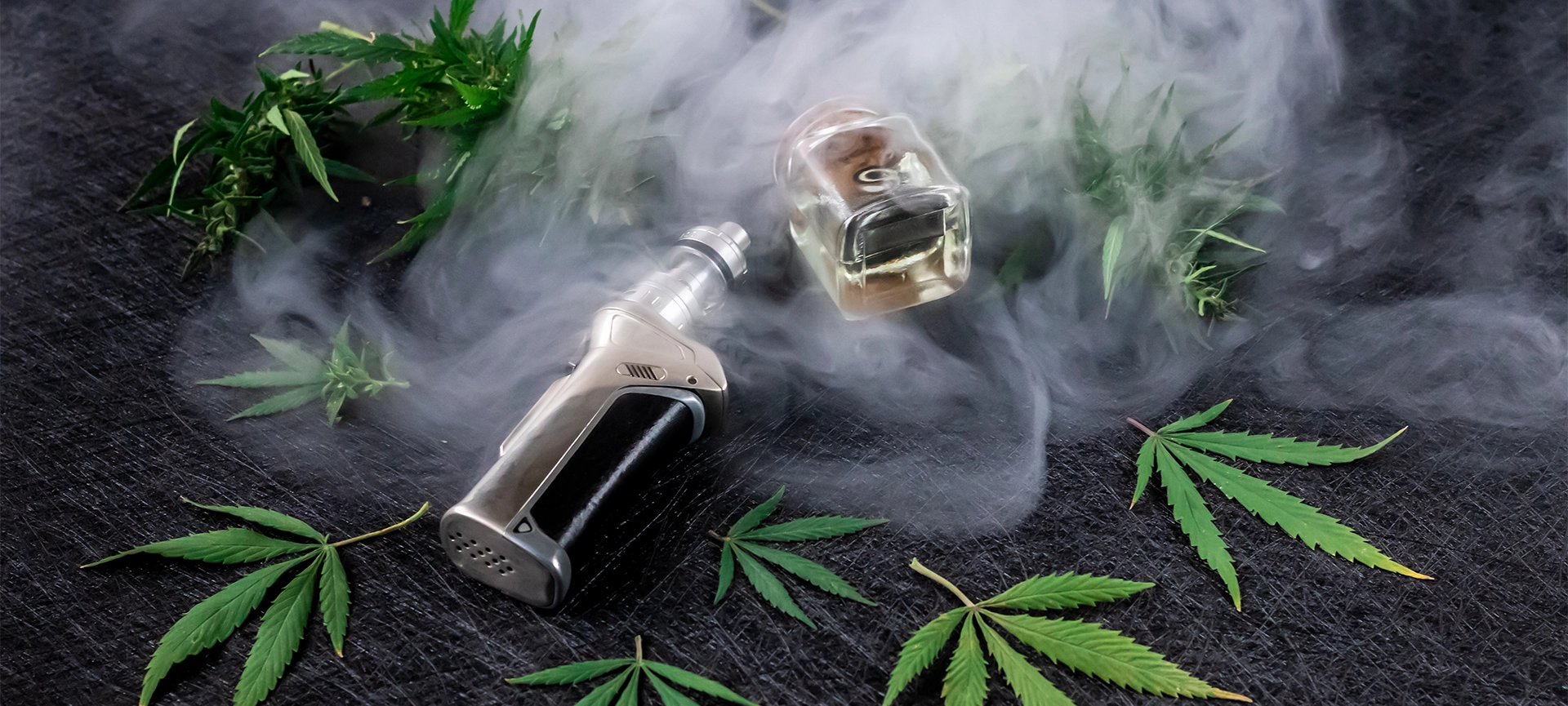As vaping THC (tetrahydrocannabinol) becomes increasingly popular, especially among younger individuals, it’s crucial to understand how long THC stays in your system and the implications this has from an addiction recovery standpoint.
THC is the primary psychoactive compound in cannabis, responsible for the “high” that users experience. While vaping may be seen as a modern and safer alternative to smoking, it carries significant risks, particularly concerning addiction and the prolonged presence of THC in the body.
Understanding the duration of THC in your system is vital for both treatment planning and recovery. This blog will explore how long THC stays in your system, the factors that influence its presence, and why this information is critical for those struggling with or recovering from addiction.
The Basics of THC Metabolism
When THC is inhaled through vaping, it enters the bloodstream almost immediately. This rapid absorption is why vaping is favoured for its quick onset of effects. However, once THC is in the body, it begins a complex process of metabolism and elimination that can have lasting implications for those in recovery.
THC is primarily metabolized by the liver, where it is broken down into various metabolites, the most significant of which is THC-COOH. Unlike THC, which produces the psychoactive effects, THC-COOH is an inactive metabolite. However, it is stored in fat cells and released slowly over time, which is why THC can remain detectable in the body long after the initial effects have worn off.
Factors Influencing THC Duration in the System
The length of time THC stays in the system can vary widely depending on several factors, which are particularly important in the context of addiction treatment.
Frequency of Use
Occasional Users: For those who vape THC infrequently, THC and its metabolites may clear from the system relatively quickly, usually within a few days. However, even occasional use can lead to THC lingering in the system longer than expected, which can affect drug tests and treatment plans.
Regular Users: Individuals who use THC regularly are likely to have a build-up of THC in their fat cells. In these cases, it can take two to three weeks for THC to be fully eliminated from the body.
Chronic Users: Chronic users, who vape THC daily, may have significant stores of THC in their fat cells. For these individuals, THC can remain in the system for over a month, and in some cases, up to 90 days.
Metabolism
Metabolic rate plays a significant role in how quickly THC is processed and eliminated. Those with a faster metabolism may clear THC more rapidly, while individuals with slower metabolisms may retain THC for longer periods. This variability can affect how long withdrawal symptoms or cravings persist.
Body Fat Percentage
Since THC is stored in fat cells, individuals with higher body fat percentages may retain THC metabolites longer. This is a crucial consideration in addiction treatment, as it may influence the timing of withdrawal symptoms and the planning of detox programs.
Product Potency
The concentration of THC in the vape product also affects how long it stays in the system. Higher potency products lead to higher levels of THC, which take longer to metabolize and eliminate. This can result in prolonged psychoactive effects and a longer period before an individual reaches a state of sobriety.

Implications for Addiction Recovery
For those in addiction recovery, understanding how long THC remains in the system is critical for several reasons.
Withdrawal Management
Withdrawal symptoms are a significant challenge in addiction recovery. These symptoms can persist as long as THC remains in the system, which means that individuals with a higher body fat percentage or those who have used THC for a long time may experience withdrawal symptoms for extended periods. Knowing the duration of THC in the system can help healthcare providers plan appropriate withdrawal management strategies.
Relapse Risk
The presence of THC in the system can contribute to cravings and the risk of relapse, even weeks after the last use. This is particularly important for individuals in the early stages of recovery when the temptation to use again is strongest. Understanding the timeline for THC clearance can help in creating more effective relapse prevention plans.
1. Drug Testing in Treatment
Many addiction treatment programs include regular drug testing to monitor progress and ensure compliance. THC’s extended presence in the body means that even after stopping use, an individual may continue to test positive for several weeks. This can have implications for treatment, as it may lead to misunderstandings about a patient’s compliance or progress. Being aware of the expected timeline can help both patients and providers set realistic expectations.
2. Mental Health Considerations
THC affects cognitive functions such as memory, attention, and decision-making. The prolonged presence of THC in the system can extend these cognitive impairments, which may interfere with the recovery process, particularly in therapy or counselling sessions where mental clarity is essential. Understanding the duration of these effects can help tailor treatment approaches to the individual’s needs.
3. Health Monitoring
For individuals with underlying health conditions, such as liver or kidney disease, the metabolism and clearance of THC can be further delayed. This can increase the risk of complications during recovery, particularly if other medications are involved. Healthcare providers must consider the duration of THC in the system when managing these patients.
Related Article: The Role of Nutrition in Addiction Recovery
The Role of Detox in THC Elimination
Detoxification is often the first step in addiction treatment, aiming to clear the body of harmful substances like THC. Given that THC is stored in fat cells and released slowly, detox from THC can be more prolonged than with other substances, particularly if the individual has been a chronic user.
During detox, withdrawal symptoms such as anxiety, irritability, insomnia, and cravings may persist until THC is fully eliminated from the system. This process can be uncomfortable and challenging, making medical supervision and support crucial.
At Addiction Rehab Toronto, we emphasize a holistic approach to detox, which may include hydration, nutrition, exercise, and psychological support to help manage symptoms and reduce the overall detox timeline.
How to Approach THC Use in Recovery
For those in recovery, it is essential to approach THC use with caution, even if it is for medicinal purposes. While cannabis has therapeutic benefits for certain conditions, it can also pose risks for those with a history of substance abuse, particularly regarding dependency and relapse.
1. Education and Awareness
Understanding how THC works in the body, how long it stays in the system, and the potential for addiction is crucial for making informed decisions. Individuals in recovery should be aware of the risks associated with vaping THC and the impact it can have on their progress.
2. Alternative Therapies
For those using THC medicinally, exploring alternative treatments that do not involve THC or other psychoactive substances may be beneficial. This can help reduce the risk of relapse and ensure that recovery remains the primary focus.
3. Support Networks
Building a strong support network is vital for those in recovery. Whether it’s through counselling, support groups, or family, having people to lean on during the challenging times of withdrawal and detox can make a significant difference in staying on the path to sobriety.
Related Article: The Benefits of Group Therapy in Addiction Recovery

Embracing a THC-Free Life
Understanding how long THC stays in your system is more than just a matter of passing a drug test; it’s a critical component of successful addiction recovery. The prolonged presence of THC can influence withdrawal symptoms, relapse risk, cognitive function, and overall health.
At Addiction Rehab Toronto, we are committed to helping individuals face these challenges with comprehensive care that addresses both the physical and psychological aspects of addiction.
If you or someone you know is struggling with THC addiction or considering recovery, we encourage you to seek professional help to guide you on the journey to a healthier, substance-free life. Talk to us to learn more about our drug rehab programs.








This article explains how long THC stays in your system after vaping, which can vary based on factors like frequency of use, metabolism, and body fat percentage. For occasional users, THC may clear in a few days, but for chronic users, it can linger for weeks or even months. This is crucial for addiction recovery, as THC’s prolonged presence can affect withdrawal, relapse risk, and treatment plans. For more on drug testing,